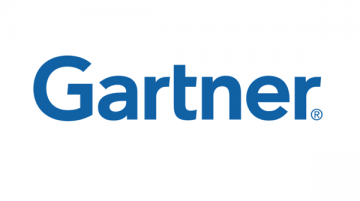 A study by Gartner has found that CFOs are getting more involved in shaping their firms’ AI strategies.
A study by Gartner has found that CFOs are getting more involved in shaping their firms’ AI strategies.
The research, which quizzed 822 bosses, found that 34 per cent of them thought CFOs had a say in their AI plans. CTOs came top with 55 per cent, followed by CIOs with 48 per cent and CEOs with 45 per cent.
Chief bean counter at Gartner, Alexander Bant, said most CFOs are unhappy with how their digital projects are going.
“AI spending is set to soar by five to eight times this year at most firms, and many CFOs are playing a key role in ensuring these investments pay off and don’t cause too much risk.”
 A new report by Gartner says that global IT spending will soar by 6.8 per cent to a whopping $5 trillion this year!
A new report by Gartner says that global IT spending will soar by 6.8 per cent to a whopping $5 trillion this year! According to Gartner bean counters, global semiconductor revenue is projected to grow 16.8 per cent in 2024 to total $624 billion.
According to Gartner bean counters, global semiconductor revenue is projected to grow 16.8 per cent in 2024 to total $624 billion. Fortune tellers at Gartner group have been shuffling their Tarot cards and concluded that cloud computing will shift from being a technology disruptor to being compulsory for firms by 2028
Fortune tellers at Gartner group have been shuffling their Tarot cards and concluded that cloud computing will shift from being a technology disruptor to being compulsory for firms by 2028 Beancounters at Gartner have added up some numbers and divided by their collective shoe size and worked out that IT spending in Europe is projected to total $1.1 trillion in 2024, an increase of 9.3 per cent.
Beancounters at Gartner have added up some numbers and divided by their collective shoe size and worked out that IT spending in Europe is projected to total $1.1 trillion in 2024, an increase of 9.3 per cent. More than 71 per cent of CMOs said they need more budget to fully execute their strategy in 2023, according to a Gartner survey.
More than 71 per cent of CMOs said they need more budget to fully execute their strategy in 2023, according to a Gartner survey.










